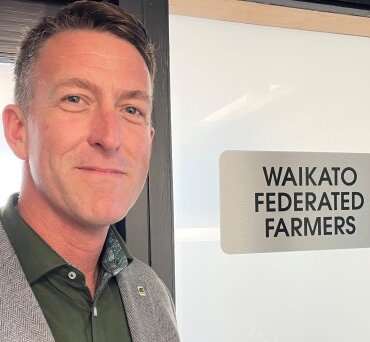
Phil Sherwood
Waikato Federated Farmers is poring through the Environment Court’s 376-page interim decision on Waikato Regional Council’s Plan Change One.

Dairy farmer Phil Sherwood is the new president of Waikato Federated Farmers.
“Our team are now working through the detail to understand what additional requirements, if any, might be put in place for Waikato farmers over and above existing requirements,” said president Phil Sherwood.
Some things seem to be landing in a better place compared to where they started in 2016 with earlier versions of the plan, Sherwood said, but there will be challenges for local farmers.
Many low-intensity dairy and dry stock farms are likely to be a permitted activity under the rules. Most other farming activities will be classified as controlled activities, meaning a resource consent will be needed, but cannot be declined.
The most significant change to the Waikato’s farming rules in more than a generation have taken 12 years to get to this point.
“Farmers have engaged constructively in the process for over a decade now, but the plan has been stuck in an endless cycle of hearings, appeals and Environment Court processes,” Sherwood said.
“When it comes to farming rules, Waikato farmers are looking for some certainty, but we also need to know rules will be practical, affordable and fair.
“It’s been an incredibly long and expensive process for farmers. We’ve spent hundreds of thousands of dollars in legal costs, and countless volunteer hours.
“This plan change will have a huge impact on farming families and businesses. It will cover everything from fencing requirements right through to farm environmental plan standards.”
“This is largely in line with where national regulation has been heading for a while now and some farmers will already have a farm plan of some description in place.
Sherwood warned there might be challenging aspects of the stock exclusion rules.
“All stock will need to be excluded from all waterbodies on land with slopes of up to 10° as soon as practicable, within five years of the rules coming into force. If this can’t be met, then a farmer could apply for resource consent,” he said.
“Farmers are also going to need to identify all unfenced streams on land with slopes between 10° and 15° in their farm plan and put in place a plan to fence them within a further five years.
“Having an interim decision is a significant milestone, but our team now needs time to read the decision and get our heads around what it might mean behind the farm gate for our members.”
Waikato Regional Council has until July 25 to respond to the directions of the Court.








